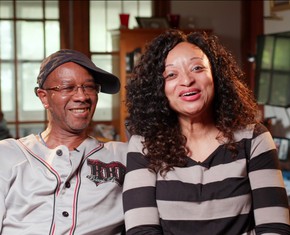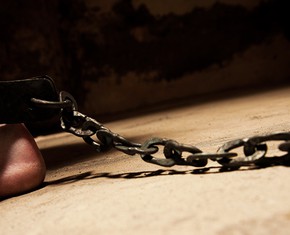The views expressed in our content reflect individual perspectives and do not represent the authoritative views of the Baha'i Faith.
I’m sure you’re familiar with the still-popular bumper sticker advice: “Think Globally, Act Locally.”
You may consider it a child of the ’60s consciousness, along with “ecology” and black power, but the maxim is much older than you might imagine. In fact, it was the brainchild of Patrick Geddes, a 1915 town planner and social activist.
But long before Geddes and others forged their global consciousness, the Baha’i prophet Baha’u’llah wrote, “Let your vision be world-embracing, rather than confined to your own self.” – Tablets of Baha’u’llah, p. 87.
For thousands of years we have left the world-embracing “think globally” part of the equation up to others—the thinkers, philosophers, statesmen and world leaders. Most of us on Earth have chiefly concerned ourselves with our own town, state and nation. In these modern times an argument could be made that big corporations think more globally than many world leaders. So much has our attention focused on solely local issues, that it’s only relatively recently that modern magazines and news sources have covered world events to a similar extent, like The Week and The Economist, providing alternative views across the globe. Today thousands of magazines, TV stations, and newspapers disseminate world news, although national issues dominate. In fact, newspapers have cut back drastically on local news and photos.
So we find ourselves in an age of world problems affecting local, state and national policies and politics, with huge implications for the welfare of ordinary citizens everywhere. Besides natural disasters affecting tens of thousands, civil wars displacing millions as refugees, and global poverty and lack of jobs affecting billions, now climate change affects everyone on the planet. At times we feel like throwing up our hands and failing to get involved out of frustration or despair. Of course, that’s exactly why these problems become intractable and grow steadily worse – because enough of us do not actively involve ourselves in finding and implementing global solutions. We focus solely on the local and forget the big picture.
Of course, it’s easy to get confused about where to apply one’s limited resources to effect change. With over one million charitable organizations in the U.S. alone, who do I help? How can I add my voice in the most effective way? They all have good purposes, don’t they? What can I do that will actually help the world, my country, my town, my own family?
The Baha’i teachings ask us to focus our efforts on the betterment of the entire world:
All men have been called into being for the betterment of the world. It behoveth every soul to arise and serve his brethren for the sake of God. – Baha’u’llah, Tabernacle of Unity, p. 5.
…if the man of moral integrity and intellectual acumen shall unite for human betterment and uplift with the man of spiritual capacity, the happiness and progress of the human race will be assured. – Abdu’l-Baha, The Promulgation of Universal Peace, p. 102.
O people of God! Do not busy yourselves in your own concerns; let your thoughts be fixed upon that which will rehabilitate the fortunes of mankind and sanctify the hearts and souls of men. This can best be achieved through pure and holy deeds, through a virtuous life and a goodly behaviour. – Baha’u’llah, Tablets of Baha’u’llah, p. 86.
We all admire honesty, integrity, forthrightness, fairness and equanimity in our leaders. We can do no less in examining our own motives and purposes when we want to help ourselves and society. Whether that means supporting a worthy charity or one or more just causes, or helping clean up our local parks and playgrounds, or serving in volunteer or paid positions for our local or state government, or merely performing honest work and providing for our families, we all have the power to do something that will help.
That local action and activism, however, can best help the entire world when it focuses on building a unified, harmonious humanity. The Baha’i teachings ask each of us to act locally, but also to think big, considering ourselves citizens of one world working toward a unified future.
















Comments
Sign in or create an account
Continue with Googleor